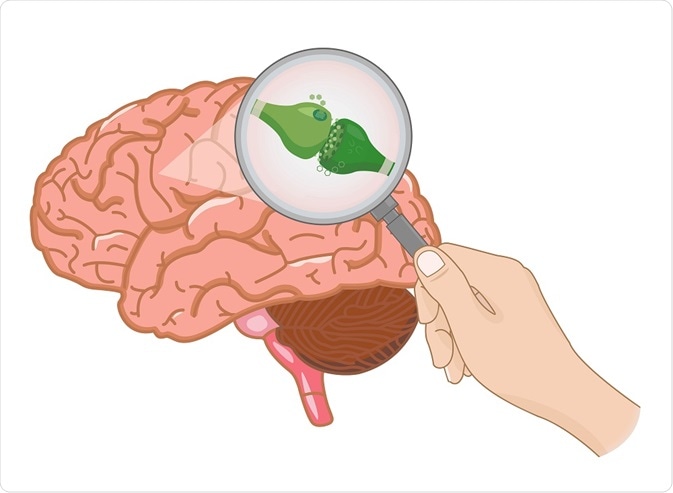As the rate of cannabis consumption continues to rise, healthcare professionals and researchers around the world have become increasingly concerned as to whether this drug can alter normal neuropsychological function.
In an effort to elucidate the genome-specific mechanisms by which these adverse health effects can arise, researchers have determined that the expression of the liprin-α-2 gene plays a role in altering the normal neuropsychological function of cannabis users.
 Image Credit: About Time/Shutterstock.com
Image Credit: About Time/Shutterstock.com
Background
Several scientific studies have determined that cannabis consumption can lead to an increased risk of psychosis, psychotic-like experiences, declined intelligence, as well as impaired short-term episodic and working memory.
While these associations have been confirmed by several different investigators, the mechanisms by which cannabis use causes decreased neuropsychological function remain largely unknown. For example, some researchers have hypothesized that tetrahydrocannabinol (THC), which is one of the most active ingredients in cannabis, has the ability to dysregulate the dopamine system in the brain by altering the function of the endocannabinoid type 1 receptor (CB1R).
Other researchers have found that cannabis use can lead to a direct alteration in neuronal white matter composition, thereby leading to the altered neuropsychological function in users.
Altered gene expression in cannabis users
Previous work has found that a select few genes most likely play a role in the altered neuropsychological function of cannabis users. These genes include AKT Serine/Threonine Kinase 1 (AKT1), Catecholamine O-Methyl transferase (COMT), as well as a gene responsible for coding cannabis receptor cannabinoid receptor type 1 (CNR1).
In an effort to expand the knowledge of gene-related effects following continued cannabis use, a 2019 European Neuropsychopharmacology study collected data on 100 non-cannabis users and 90 heavy cannabis users. In addition to considering the subjects’ cannabis use, the researchers also selected participants based on their history of psychotic experiences that ranged from low to high scores.
To this end, the researchers analyzed the whole blood of all test subjects to assess the genome-wide gene expression of 20,765 probes. From these probes, the researchers determined that two specific genes were associated with heavy cannabis use, which includes Protein Tyrosine Phosphatase Receptor Type F Polypeptide-Interacting Protein Alpha-2 (PPFIA2) and C-X3-C Motif Chemokine Receptor 1 (CX3CR1), which was confirmed by quantitative real time polymerase chain reaction (qPCR).
Overexpression of PPFIA2 and altered neuropsychological function
The PPFIA2 gene is responsible for encoding the liprin-α-2 protein that is highly expressed in both neurons and oligodendrocytes. Previous research has found that liprin-α-2 plays a role in maintaining the density and growth of excitatory synapses and dendritic spines in the neurons of the hippocampus, organizing both neurotransmitter function and pre-and post-synaptic vesicle preparation, as well as dendrite development.
Researchers have found that liprin-α, upon interaction with muscarinic acetylcholine receptors (mAChR), can lead to an increased release of endocannabinoids in the hippocampus and ultimately lead to long term depressive states, as well as a stimulated release of neurotransmitters from inhibitory synapses present within the hippocampus.
The ability of cannabis to disrupt the endocannabinoid system within the hippocampus can therefore allude to a causal relationship between heavy cannabis use and altered neurophysiological function by liprin-α-2.
Source
- He, Y., de Witte, L. D., Schubart, C. D., Van Gastel, W. A., Koeleman, B. P. C., et al. (2019). Liprin alfa 2 gene expression is increased by cannabis use and associated with neuropsychological function. European Neuropsychopharmacology 29; 643-652. DOI: 10.1016/j.euroneuro.2019.03.004.
Further Reading